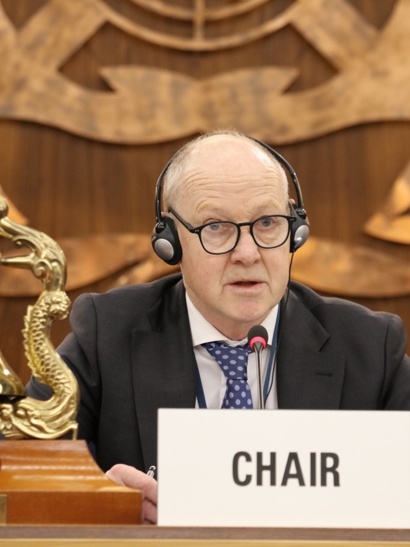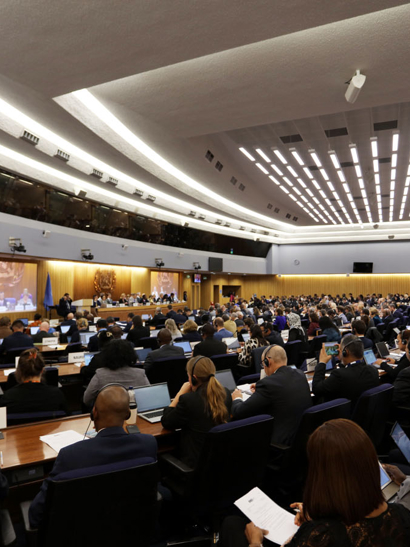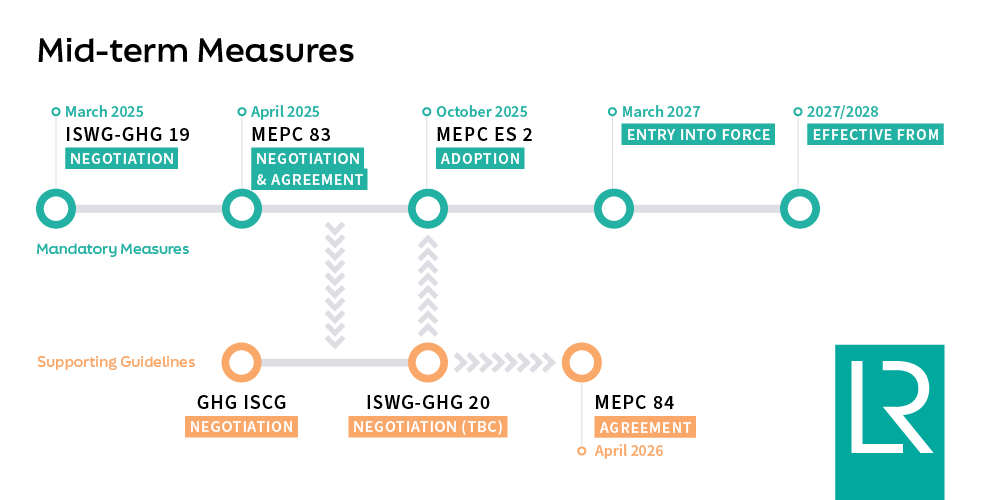There will be both macro and micro issues to address at MEPC 83 in April and discussions have been under way for months. There will be two work streams: one on short-term GHG measures, which are under review. These include the Energy Efficiency Existing Ship Index (EEXI) but primarily the focus is around the Carbon Intensity Indicator (CII), a measure of carbon efficiency per transport work.
A second, more pivotal work stream will consider a range of mid-term GHG measures designed to enable global shipping to progress towards its mid-century goals and ambitions of achieving net-zero GHG emissions by or around 2050, as well as facilitating a ‘just and equitable’ transition to a decarbonised shipping sector. MEPC 83 will consider the tricky question of funding the energy transition. As the IMO operates on the basis of consensus between its 176 member states, many of which have different interests and priorities, this will be challenging.
In the weeks and months leading up to MEPC 83, there have been many meetings, both formal and informal, between different interested parties to assess their negotiating positions and develop strategies. There may still be differences at the beginning of MEPC, but these are almost invariably resolved with last-minute concessions and compromises.
Firm and steady hand
The stewardship of IMO veteran, Sveinung Oftedal, the Chair of IMO’s Working Group on Reduction of GHG Emissions from Ships has often proved invaluable. He is Specialist Director of the Norwegian Ministry of Climate and Environment and has chaired the Working Group during MEPC, as well as the Intersessional meetings of the Group for many years. Where the diverse interests of different member states may seem so far apart that they present an insurmountable stumbling block, Oftedal’s firm and steady hand finds mutually acceptable resolutions.
Thanks to Oftedal’s consensus building, the IMO’s revision of its Strategy on GHG saw the 2023 IMO Strategy on Reduction of GHG Emissions from Ships adopted at the pivotal MEPC 80 by acclamation with all IMO member states supporting it. This set out a headline ambition of shipping reaching net-zero GHG emissions by or around 2050.
During the 18th Session of the Intersessional meeting of the GHG Working Group, the mood was generally light-hearted and upbeat with the Group reviewing draft legal text for the mid-term GHG measures. While there is much still to be done, Oftedal’s continued leadership gives hope to success on a landing ground during MEPC 83 for regulatory text giving force to the mid-term measures.


Who will pay, and how?
One of the main issues to be resolved in April is how shipowners and operators will pay for GHG emissions from their ships on a well-to-wake basis. These funds are essential to support the development and scale up of a new generation of carbon-free marine fuels which are currently significantly more expensive than traditional fossil fuels whilst also supporting developing countries and remote island states through the energy transition in shipping.
There are two camps – on the one hand, there are those that want to set the economic element of the basket of mid-term GHG measures through the purchasing of remedial units/credits and adding transaction fees for transferring surplus units/credits within the design of the technical measure (the fuel standard). This approach would see revenues gained from under-compliant ships paying for credits to make up the compliance deficit and paying a fee for transferring over compliance ‘surplus’ credits to under compliant ships to make up their deficit either within a company or through private transaction on an open market. However, critics of this approach argue that this would not raise the necessary funds to ensure a ‘just and equitable transition’ and reduce the cost gap between fossil fuels and alternative fuels through research and development. This is on the basis that critics believe there is a need for guaranteed revenue to, among other things, support the least developed countries and small island developing states overcome negative impacts of the measures through support for port infrastructure etc.
On the other side, there are those which support a flat fee for GHG emissions from ships as a better solution, as it would go toward guaranteeing revenue and reduce the cost gap between fuel types. The arguments on both sides are complex and sometimes contradictory. Some maintain that a flat-fee approach would penalise remote regions of the world, which have no access to GHG free energy sources and rely on sea transport for almost everything, and that a flat fee would simply cost them out of existence.
The IMO cannot be seen to close this milestone MEPC meeting on a ‘no deal’ basis. It is not expected to be a hostile meeting, but there are many heated discussions already taking place in back rooms and corridors that will continue in the lead up to the meeting. It is anticipated, however, that the IMO is still likely to close MEPC 83 with a consensus.
Indicative timeline of the IMO process through to the mid-term measures entering into force:






